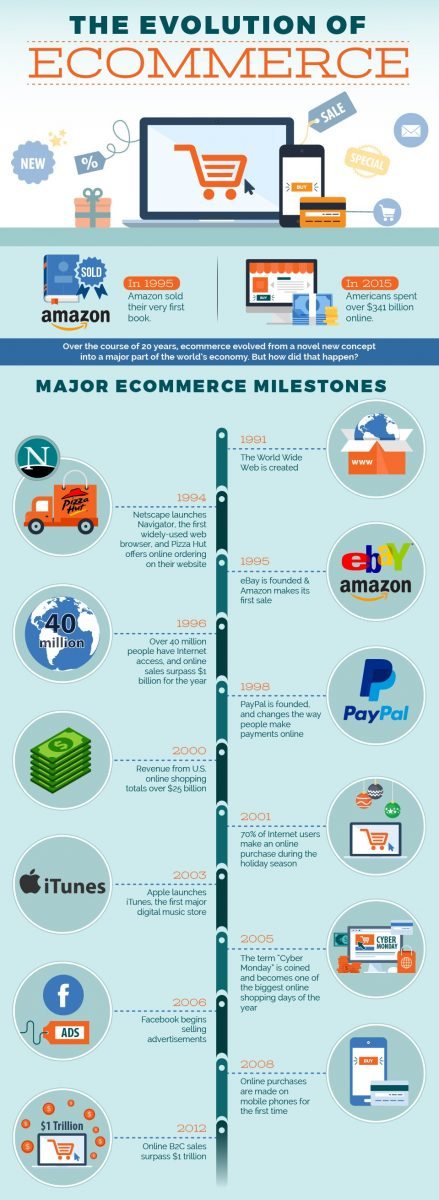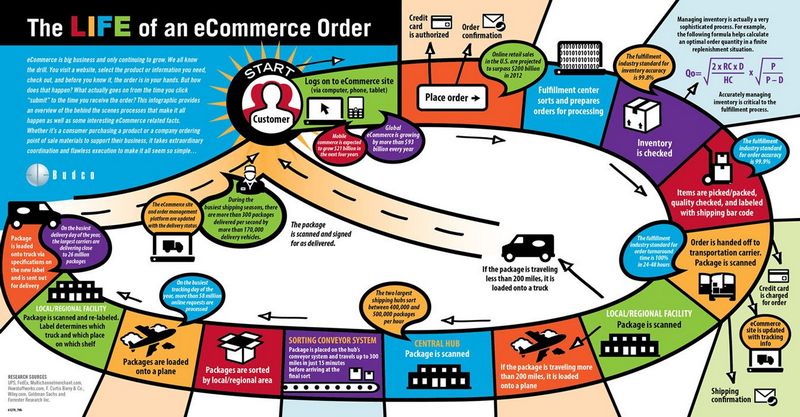- Analyzing the Rise of Eco-Commerce: What It Means for Your Business
- The Rise of Eco-Commerce
- Understanding the Green Revolution
- Impact on Traditional Retail
- Changing Consumer Behavior
- The Eco-Friendly Advantage
- Shifting Business Strategies
- Evaluating the Market Potential
- Environmental Sustainability
- Creating a Green Brand
- Engaging the Conscious Consumer
- Adapting Supply Chains
- Developing Sustainable Packaging
- Incorporating Renewable Energy
Analyzing the Rise of Eco-Commerce: What It Means for Your Business
E-commerce trends have been rapidly evolving over the years, and one of the most significant developments is the rise of eco-commerce. This emerging trend focuses on promoting sustainable business practices, which aim to minimize the environmental impact of online shopping.
One of the key aspects of eco-commerce is carbon-neutral shipping, where businesses offset the carbon emissions generated during the transportation of products. By implementing this practice, companies can make a considerable difference in reducing their overall carbon footprint.
Ethical sourcing is another crucial factor that plays a vital role in eco-commerce. Consumers are increasingly concerned about the origins of the products they purchase, and businesses that prioritize ethical sourcing can gain a competitive edge. Sourcing products from suppliers that prioritize fair labor practices and use sustainable raw materials is an effective way to meet consumer demands for transparency and sustainability.
Understanding consumer behavior in relation to green business is essential for companies looking to thrive in the eco-commerce era. Consumers are actively seeking out eco-friendly shopping options and are more likely to support businesses that align with their values. By incorporating sustainable development into the core of business operations and providing eco-friendly products, companies can attract and retain environmentally conscious consumers.
In addition to enhancing consumer satisfaction, adopting sustainable business practices also aligns with corporate social responsibility (CSR) initiatives. By implementing green marketing strategies and emphasizing the environmental impact of products, businesses can showcase their commitment to sustainability and engage with consumers who prioritize eco-commerce.
One important element of eco-commerce is the circular economy, which focuses on reducing waste and maximizing the lifespan of products. Recycling and using sustainable packaging options are key components of this concept. By using renewable resources and designing products for longevity and recyclability, businesses can contribute to a circular economy and minimize their ecological footprint.
The increasing popularity of eco-commerce presents numerous opportunities for businesses to thrive in a sustainable and socially responsible manner. By staying ahead of e-commerce trends and embracing eco-friendly practices, companies can meet consumer demands for sustainable products and contribute to a greener future.
The Rise of Eco-Commerce
Eco-commerce, also known as sustainable e-commerce, is a growing trend in the business world that focuses on combining online shopping with sustainable development practices. As more consumers become aware of the environmental impact of traditional retail, there is a growing demand for eco-friendly shopping options.
One of the key aspects of eco-commerce is carbon-neutral shipping. Companies are increasingly adopting measures to reduce their carbon footprint by utilizing renewable resources and implementing sustainable business practices. This includes using carbon-neutral shipping methods, such as electric vehicles or offsetting emissions through environmentally friendly projects.
Another important aspect of eco-commerce is the adoption of sustainable packaging. Many businesses are now focusing on using biodegradable and recyclable materials for their packaging to minimize waste and reduce environmental impact. This shift towards sustainable packaging not only benefits the environment, but it aligns with consumer values and can be a strong marketing tool.
Eco-commerce is also supporting the circular economy, where products are designed to be reused, repaired, or recycled, rather than thrown away. Companies are increasingly incorporating circular economy principles into their business models, encouraging consumers to be mindful of the lifecycle of their products and making it easier for them to recycle or dispose of items responsibly.
Online shopping has also contributed to the rise of eco-commerce. With the convenience of shopping from home, consumers are more likely to make ethical purchasing decisions. They can easily research and engage with brands that prioritize sustainable practices, fair trade, and ethical sourcing. This shift in consumer behavior has pushed businesses to prioritize corporate social responsibility and transparency in their operations.
In conclusion, the rise of eco-commerce is driven by the increasing awareness of sustainability and the desire for greener alternatives in the e-commerce industry. By adopting sustainable practices, businesses can not only reduce their environmental impact, but also attract eco-conscious consumers and thrive in the evolving market.
Understanding the Green Revolution
Understanding the Green Revolution is essential for businesses looking to embrace eco-commerce and capitalize on the growing demand for sustainable products and services. This revolution is driven by the need to protect the environment and promote sustainable development.
The rise of renewable resources is a key aspect of the Green Revolution. Consumers are increasingly seeking products made from renewable materials, such as bamboo, organic cotton, and recycled materials. Businesses that prioritize using renewable resources in their products can attract environmentally-conscious consumers.
Another important factor in the Green Revolution is carbon-neutral shipping. Consumers are now aware of the environmental impact of shipping goods and are looking for companies that offset their carbon emissions. Offering carbon-neutral shipping options can be a powerful selling point for businesses operating in the eco-commerce space.
Consumer behavior is also shifting towards a greener mindset. People are becoming more conscious of their purchasing decisions and are actively looking for products that align with their values. Businesses can capitalize on this by implementing green marketing strategies and highlighting their commitment to sustainability.
Recycling is a fundamental aspect of the Green Revolution. It is no longer enough for businesses to produce recyclable products; they must also actively promote and support recycling initiatives. Implementing sustainable packaging and encouraging customers to recycle can significantly reduce the environmental impact of a business.
Ethical sourcing and fair trade are other key components of the Green Revolution. Consumers are increasingly concerned about the working conditions and wages of the people involved in producing the products they buy. Businesses that prioritize ethical sourcing and fair trade can earn the trust and loyalty of conscious consumers.
The circular economy is a concept that is gaining traction in the green business world. It promotes the idea of reducing waste and keeping resources in use for as long as possible. Embracing the circular economy can lead to cost savings, increased efficiency, and a reduced environmental footprint.
To thrive in the era of eco-commerce, businesses need to offer a wide range of eco-friendly products. These products are designed with the environment in mind, using sustainable materials and production processes. By offering a selection of eco-friendly products, businesses can attract consumers who prioritize sustainability.
Online shopping and e-commerce trends play a significant role in the Green Revolution. The convenience and accessibility of online shopping make it a popular choice for consumers. Businesses that embrace eco-commerce and offer sustainable products online can tap into this growing market.
Sustainable packaging is another important aspect of eco-commerce. Rather than using traditional packaging materials that contribute to waste, businesses should invest in sustainable packaging solutions. These can include biodegradable or compostable materials that reduce the environmental impact of shipping and packaging.
Eco-commerce is not just about selling eco-friendly products; it also involves adopting sustainable business practices. This can include reducing energy consumption, minimizing waste, and implementing recycling programs. Integrating sustainability into all aspects of a business’s operations is key to long-term success in the eco-commerce space.
Corporate social responsibility is a crucial aspect of the Green Revolution. Businesses that actively engage in activities that benefit their communities and the environment can gain a competitive edge. Consumers are increasingly drawn to companies that demonstrate a commitment to social and environmental causes.
In conclusion, understanding the Green Revolution is essential for businesses looking to thrive in the era of eco-commerce. By embracing renewable resources, carbon-neutral shipping, sustainable packaging, ethical sourcing, and demonstrating a commitment to environmental stewardship, businesses can attract the growing market of eco-conscious consumers and contribute to a more sustainable future.
Impact on Traditional Retail
In recent years, the rise of eco-commerce has had a significant impact on traditional retail. Consumers are becoming more conscious of the environmental impact of their purchasing decisions and are seeking out businesses that prioritize sustainability and ethical practices.
One of the key ways in which eco-commerce is changing the retail landscape is through the promotion of recycling and the use of renewable resources. Many eco-commerce companies are incorporating recycled materials into their products and packaging, reducing waste and minimizing the need for new resources. This shift in consumer behavior has forced traditional retailers to reevaluate their own practices and consider how they can adopt more sustainable approaches.
Another major change brought about by eco-commerce is the shift towards online shopping. Online retailers have been able to position themselves as sustainable alternatives to traditional brick-and-mortar stores by offering carbon-neutral shipping and minimizing their environmental impact. This has presented a significant challenge to traditional retailers, who now need to find ways to adapt to the changing market landscape and meet the growing demand for sustainable options.
Sustainable development has emerged as a key aspect of eco-commerce, and businesses that prioritize sustainability and eco-friendly practices are enjoying increased success and market share. Companies that have embraced sustainable business practices, such as ethical sourcing and fair trade, are able to appeal to environmentally conscious consumers and differentiate themselves from their competitors.
Furthermore, the rise of eco-commerce has also led to the growth of green marketing and green business initiatives. Companies are now actively promoting their eco-friendly products and services, and consumers are increasingly seeking out businesses that align with their values. This has created a demand for eco-friendly shopping experiences and has prompted many traditional retailers to reevaluate their marketing strategies and incorporate green messaging into their campaigns.
In conclusion, the rise of eco-commerce has had a profound impact on traditional retail. The shift towards sustainability and environmental consciousness has changed consumer behavior and forced traditional retailers to adapt. In order to remain competitive, businesses must embrace eco-commerce trends, incorporate sustainable practices into their operations, and prioritize corporate social responsibility.
Changing Consumer Behavior
Consumer behavior has shifted significantly in recent years due to increased awareness about environmental issues and a growing desire for sustainable products and practices. This shift is evident in the rise of eco-commerce, which encompasses a range of business practices aimed at reducing the environmental impact of online shopping.
Today’s consumers are more likely to prioritize fair trade, renewable resources, and sustainable development when making purchasing decisions. They are increasingly concerned about the environmental impact of their choices and are looking for ways to minimize their carbon footprint. As a result, e-commerce trends are now influenced by consumer demand for eco-friendly products, ethical sourcing, and sustainable business practices.
In response to this change in consumer behavior, many businesses are implementing eco-commerce strategies to meet the growing demand for sustainable products and services. This includes offering carbon-neutral shipping options, using recycled or sustainable packaging materials, and promoting corporate social responsibility initiatives. By adopting these practices, businesses can attract environmentally conscious consumers and differentiate themselves in the market.
Furthermore, many consumers are now actively seeking out eco-friendly shopping options and are willing to pay a premium for products that align with their sustainability values. This presents a significant opportunity for businesses to capitalize on the growing demand for eco-commerce products, while also making a positive impact on the environment.
In summary, changing consumer behavior is driving the rise of eco-commerce, with consumers prioritizing sustainability and ethical practices in their purchasing decisions. Businesses that adapt to these changing trends by offering eco-friendly products and implementing sustainable business practices can position themselves for success in the evolving e-commerce landscape.
The Eco-Friendly Advantage
Consumer behavior is shifting towards more eco-conscious choices, and businesses that embrace sustainable practices are gaining a competitive edge. Sustainable development and the protection of the environment have become key concerns for today’s consumers.
As a green business, you have the opportunity to make a positive impact on the planet and attract environmentally conscious customers. By implementing recycling initiatives and reducing waste, you can contribute to the circular economy and minimize your environmental impact.
E-commerce trends show that online shopping is on the rise, and with it comes the demand for eco-friendly products and services. Customers are not only looking for quality and convenience, but they also want to support companies that prioritize corporate social responsibility and fair trade.
Eco-commerce provides an opportunity for you to showcase your commitment to using renewable resources, adopting sustainable packaging, and implementing ethical sourcing. By offering eco-friendly shopping options, you can cater to the growing demand for environmentally conscious products.

One area where green businesses can make a significant impact is in shipping. Carbon-neutral shipping options can help offset the environmental impact of transportation and delivery. By offering carbon-neutral shipping, you can provide an eco-friendly solution for customers who are concerned about their carbon footprint.
By adopting sustainable business practices and promoting eco-friendly products, you can differentiate yourself from competitors and attract a loyal customer base. The eco-friendly advantage not only benefits the environment but also your bottom line as more and more consumers prioritize sustainability.
Shifting Business Strategies
In today’s rapidly changing business landscape, companies are increasingly focusing on shifting their strategies to adapt to the growing demand for eco-friendly and sustainable practices. One of the key areas where businesses are making a shift is in their shipping methods. Carbon-neutral shipping is becoming a top priority for companies as they strive to reduce their environmental impact.
Alongside carbon-neutral shipping, sustainable development is also a major focus for businesses. Companies are embracing the concept of the circular economy, which aims to create a system where resources are reused and recycled, minimizing waste and maximizing efficiency. This approach is not only environmentally responsible but also economically beneficial.
The rise of online shopping has also led to a surge in demand for eco-friendly products. Consumers are increasingly conscious of the environmental impact of their purchasing decisions and are actively seeking out companies that prioritize sustainability. As a result, businesses are incorporating eco-friendly options into their product offerings to meet this growing demand.
Furthermore, corporate social responsibility and ethical sourcing have become central aspects of sustainable business practices. Companies are actively working to ensure their supply chains are transparent and that they engage in fair trade practices. This commitment to ethical sourcing extends to green marketing efforts, with businesses promoting their eco-friendly practices and products to appeal to environmentally-minded consumers.
In addition to using renewable resources and sustainable packaging, businesses are also prioritizing recycling initiatives. Companies are implementing programs to encourage recycling among consumers, as well as minimizing waste and promoting a culture of sustainability within their own organizations.
Overall, the rise of eco-commerce has led to a fundamental shift in consumer behavior and expectations. Consumers now prioritize sustainability when making purchasing decisions, making it essential for businesses to incorporate eco-friendly practices into their strategies. By embracing sustainable business practices, companies can not only meet consumer demands but also contribute to a greener and more sustainable future.
Evaluating the Market Potential
In today’s business landscape, the concept of eco-commerce is gaining traction as more consumers become environmentally conscious. Green marketing and corporate social responsibility have become key drivers for businesses looking to tap into the growing market of eco-conscious consumers.
Sustainable development and consumer behavior play a crucial role in evaluating the market potential for eco-commerce. As consumers become more aware of the environmental impact of their purchasing decisions, they are actively seeking out companies that embrace sustainable packaging, circular economy principles, and ethical sourcing.
One of the significant trends in eco-commerce is the rise of online shopping. With the convenience it offers, online platforms have become a popular choice for consumers looking for eco-friendly products and services. The increasing demand for sustainable and green products has led to the rise of green businesses that align their practices with sustainability principles.
Renewable resources and sustainable business practices are at the forefront of eco-commerce. Companies that are able to integrate carbon-neutral shipping, fair trade, and recycling into their operations are more likely to attract the eco-conscious market segment.
As consumers continue to prioritize sustainability and eco-friendly solutions, businesses must evaluate the market potential of eco-commerce. By understanding the trends and demands of this growing market, companies can position themselves as industry leaders in sustainable business practices and capitalize on the opportunities presented by eco-commerce.
Environmental Sustainability
With the rise of e-commerce trends, businesses are increasingly focusing on sustainable practices to minimize their environmental impact. Environmental sustainability entails adopting eco-friendly practices in various aspects of a business, including the production, packaging, and shipping of goods.
Sustainable business practices aim to operate within the bounds of the planet’s resources by embracing the principles of the circular economy and corporate social responsibility. This involves prioritizing the use of renewable resources, reducing waste and emissions, and promoting fair trade.
One important aspect of environmental sustainability in e-commerce is offering eco-friendly products. These are goods that are sourced, produced, and packaged with minimal harm to the environment. Green business initiatives also include sustainable packaging, which focuses on reducing waste and using materials that are recyclable or biodegradable.
Moreover, businesses can engage in green marketing to promote their eco-friendly practices and products to consumers. This involves highlighting the environmental benefits of the products or services and educating consumers about the importance of sustainable development. By appealing to consumer behavior and values, companies can encourage eco-friendly shopping habits.
Another critical aspect of environmental sustainability in e-commerce is carbon-neutral shipping. This involves offsetting the emissions generated during the transportation of goods by investing in projects that reduce carbon dioxide in the atmosphere. Ethical sourcing is another strategy that businesses can adopt to minimize their environmental impact. This entails ensuring that the materials used in the production process are ethically and sustainably sourced.
Overall, embracing environmental sustainability in e-commerce is not only beneficial for the planet but also for businesses. By aligning with consumer values and preferences, companies can attract environmentally conscious customers and build a positive brand image.
Creating a Green Brand
In today’s world, eco-friendly shopping is more than just a trend – it’s a conscious choice that consumers are making to reduce their environmental impact. As a business, it’s crucial to align your brand with sustainable practices and values. By investing in ethical sourcing and implementing green marketing strategies, you can establish yourself as a leader in the industry and attract environmentally conscious customers.
One way to create a green brand is to focus on online shopping and eco-commerce. With the rise of e-commerce trends, consumers are increasingly turning to online platforms to make their purchases. By offering a comprehensive selection of eco-friendly products and implementing sustainable packaging and shipping practices, you can position your business as a champion of sustainability.
Another important aspect of creating a green brand is embracing sustainable development and circular economy principles. By actively engaging in recycling and using renewable resources, you can minimize waste and reduce your carbon footprint. Incorporating these sustainable business practices will not only benefit the environment but also showcase your commitment to corporate social responsibility.
In addition, you can differentiate your brand by offering fair trade and ethically sourced products. Supporting fair trade ensures that the workers involved in the production process are treated fairly and receive fair wages. By highlighting these efforts, you can attract socially conscious consumers who value transparency and ethical practices.
Overall, creating a green brand is a strategic move that not only benefits the environment but also helps attract and retain customers who prioritize sustainability. By implementing sustainable business practices, investing in eco-friendly products, and adopting a circular economy mindset, you can establish yourself as a leader in your industry and contribute to a more sustainable future.
Engaging the Conscious Consumer
In today’s increasingly eco-conscious world, more and more consumers are actively seeking out products and services that align with their values and contribute to a sustainable future. As a business owner, it is crucial to understand and engage with these conscious consumers to stay relevant and capture their loyalty.
One way to appeal to conscious consumers is by offering fair trade or ethically sourced products. By ensuring that the goods you sell are produced under fair conditions and without exploiting workers or the environment, you can demonstrate your commitment to social responsibility and ethical business practices.
Using renewable resources and promoting eco-friendly shopping is another important aspect of engaging conscious consumers. By offering a range of products made from sustainable materials, such as bamboo or recycled plastics, you can help reduce the overall environmental impact of consumer goods.
E-commerce trends also play a vital role in engaging conscious consumers. Offering carbon-neutral shipping options can help reduce the carbon footprint associated with online shopping, while sustainable packaging solutions, such as biodegradable or compostable materials, can further demonstrate your commitment to sustainability.
Green marketing is another effective strategy to engage conscious consumers. Use your online platforms to highlight your sustainable business practices, promote your eco-friendly products, and educate consumers about the environmental benefits of buying from your brand.
Understanding consumer behavior and the motivations behind eco-friendly shopping is key to effectively engaging the conscious consumer. By actively listening to their needs and concerns, offering transparent information about the environmental impact of your products, and providing convenient options for recycling or reusing, you can build trust and establish a loyal customer base.
Ultimately, engaging the conscious consumer goes beyond just selling eco-friendly products. It requires a holistic approach that incorporates sustainable development practices, promotes a circular economy, and embraces corporate social responsibility. By aligning your business values with the values of conscious consumers, you can position yourself as a leading green business and attract the growing market of eco-conscious shoppers.
Adapting Supply Chains
In today’s world, where environmental impact and sustainable development are becoming increasingly important, businesses need to adapt their supply chains to meet these emerging demands. One way to do this is through sustainable packaging, which aims to minimize waste and reduce the use of non-recyclable materials. By implementing sustainable packaging practices, businesses can demonstrate their commitment to sustainability and appeal to eco-conscious consumers.
Furthermore, ethical sourcing is another key aspect of adapting supply chains. By sourcing products from suppliers that adhere to fair trade and environmentally-friendly practices, businesses can ensure that their supply chains are socially responsible. This includes sourcing from suppliers who prioritize worker’s rights, use renewable resources, and minimize their carbon footprint.
The circular economy is another concept that businesses can incorporate into their supply chains to promote sustainability. This model focuses on reducing waste by reusing materials, recycling products, and extending the lifespan of products through repair and refurbishment. By implementing circular economy principles, businesses can minimize their environmental impact and create a more sustainable business model.
When it comes to marketing and promoting eco-commerce, businesses should focus on green marketing tactics. Green marketing involves highlighting the eco-friendly aspects of products or services, such as their sustainable sourcing, recyclability, or use of renewable resources. This type of marketing appeals to environmentally-conscious consumers and can help businesses differentiate themselves in a competitive market.
Overall, adapting supply chains to align with sustainable business practices is crucial in the age of eco-commerce. By considering the environmental impact of their operations, implementing sustainable packaging and sourcing strategies, and engaging in green marketing, businesses can attract eco-conscious consumers, demonstrate corporate social responsibility, and contribute to the transition towards a greener economy.
Developing Sustainable Packaging
As the demand for eco-friendly and sustainable products continues to rise, it is important for businesses to adapt their packaging strategies to meet these consumer expectations. Sustainable packaging plays a crucial role in green marketing and reducing the environmental impact of e-commerce.
In today’s eco-commerce landscape, businesses need to stay up-to-date with the latest e-commerce trends and embrace the circular economy approach. This means designing packaging that can be reused, recycled, or even composted, helping to minimize waste and promote sustainability.
By adopting sustainable packaging practices, businesses can contribute to the larger goal of sustainable development and become a part of the growing market for eco-friendly shopping. Ethical sourcing and using renewable resources are essential components of sustainable packaging, ensuring that materials are responsibly harvested and produced.
Not only does sustainable packaging reduce the environmental impact, but it also aligns with the expectations of environmentally conscious consumers. By offering eco-friendly products and utilizing fair trade and ethical sourcing practices, businesses can attract and retain customers who prioritize sustainability and corporate social responsibility.
Online shopping has become increasingly popular, and with it comes the need for sustainable business practices, such as carbon-neutral shipping and eco-friendly packaging. By implementing these practices, businesses can cater to the needs of environmentally conscious consumers and differentiate themselves in the competitive e-commerce market.
In conclusion, developing sustainable packaging is crucial for businesses looking to thrive in the eco-commerce era. By embracing green business practices, businesses can reduce their environmental impact, attract eco-conscious consumers, and contribute to the larger goal of building a sustainable future.
Incorporating Renewable Energy
When it comes to sustainable business practices, incorporating renewable energy is crucial. By using renewable resources like solar and wind power, businesses can significantly reduce their carbon footprint and contribute to a greener future.
One key area where businesses can incorporate renewable energy is in their e-commerce operations. Online shopping has been on the rise, with more consumers opting for the convenience and efficiency it offers. However, the environmental impact of e-commerce cannot be ignored, as it requires energy for data centers, servers, and shipping.
By adopting sustainable practices in their e-commerce operations, businesses can mitigate their environmental impact. For example, using sustainable packaging made from recycled materials can reduce waste and promote recycling. Additionally, implementing carbon-neutral shipping methods can further minimize the carbon emissions associated with transportation.
Furthermore, embracing sustainable development and ethical sourcing can make a significant difference. Consumers are becoming more conscious of where and how products are made, with a growing demand for eco-friendly and fair-trade options. Incorporating these principles into your business can attract environmentally-conscious shoppers and build a positive brand image.
Overall, incorporating renewable energy into e-commerce operations is an essential step for businesses to take in order to align with e-commerce trends and consumer behavior. By adopting green business practices, businesses can not only reduce their environmental impact but also appeal to the growing number of eco-cons








